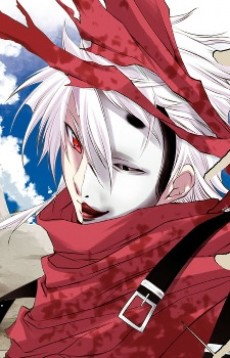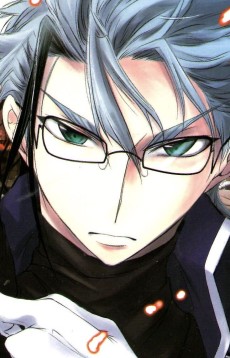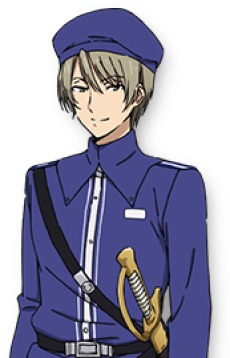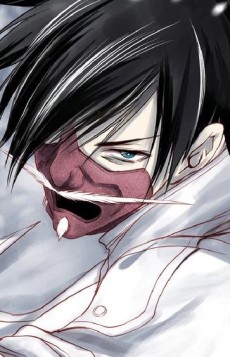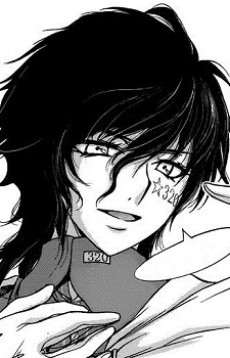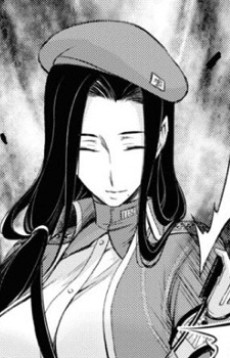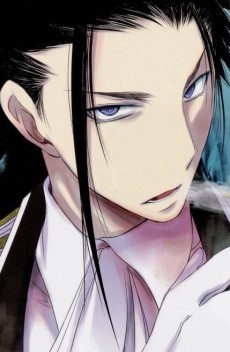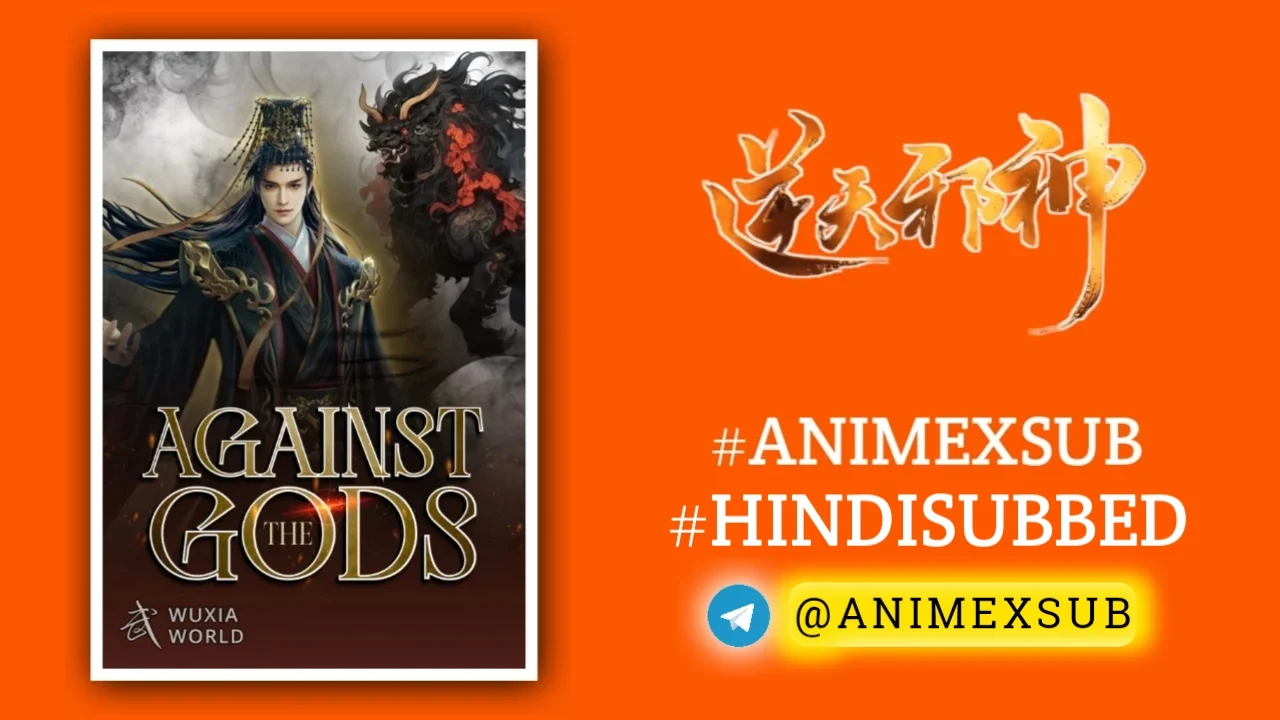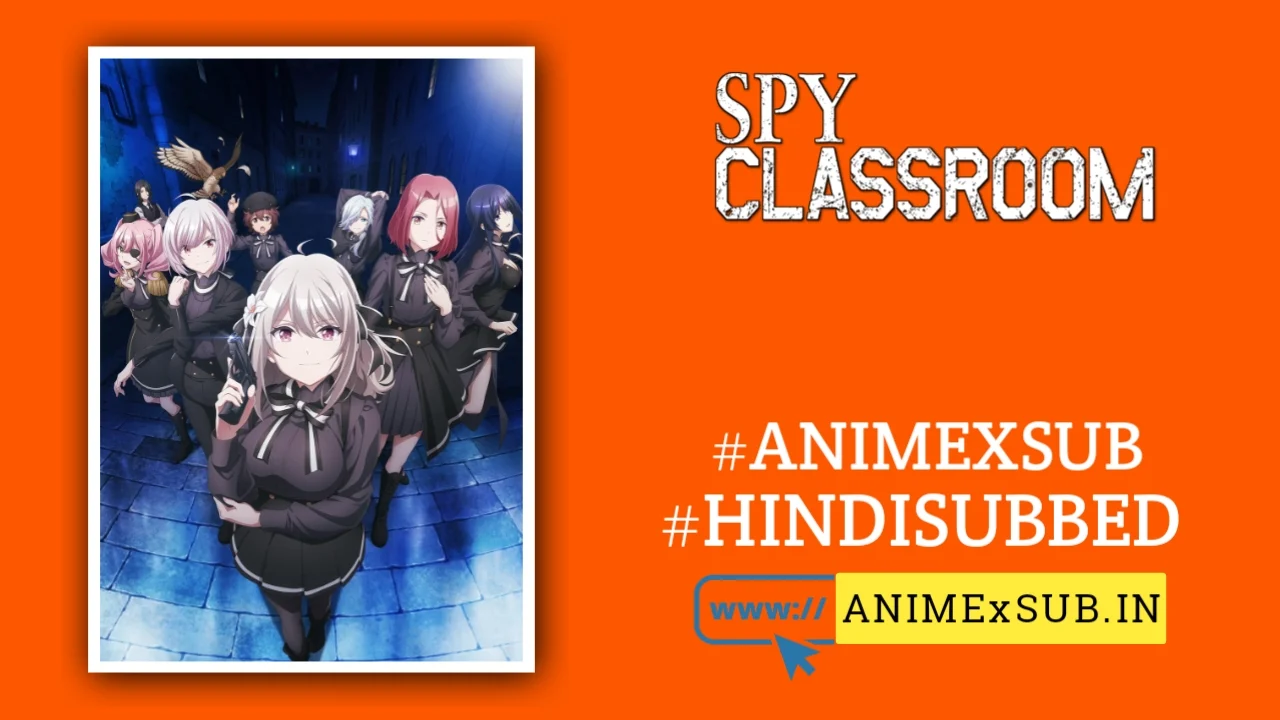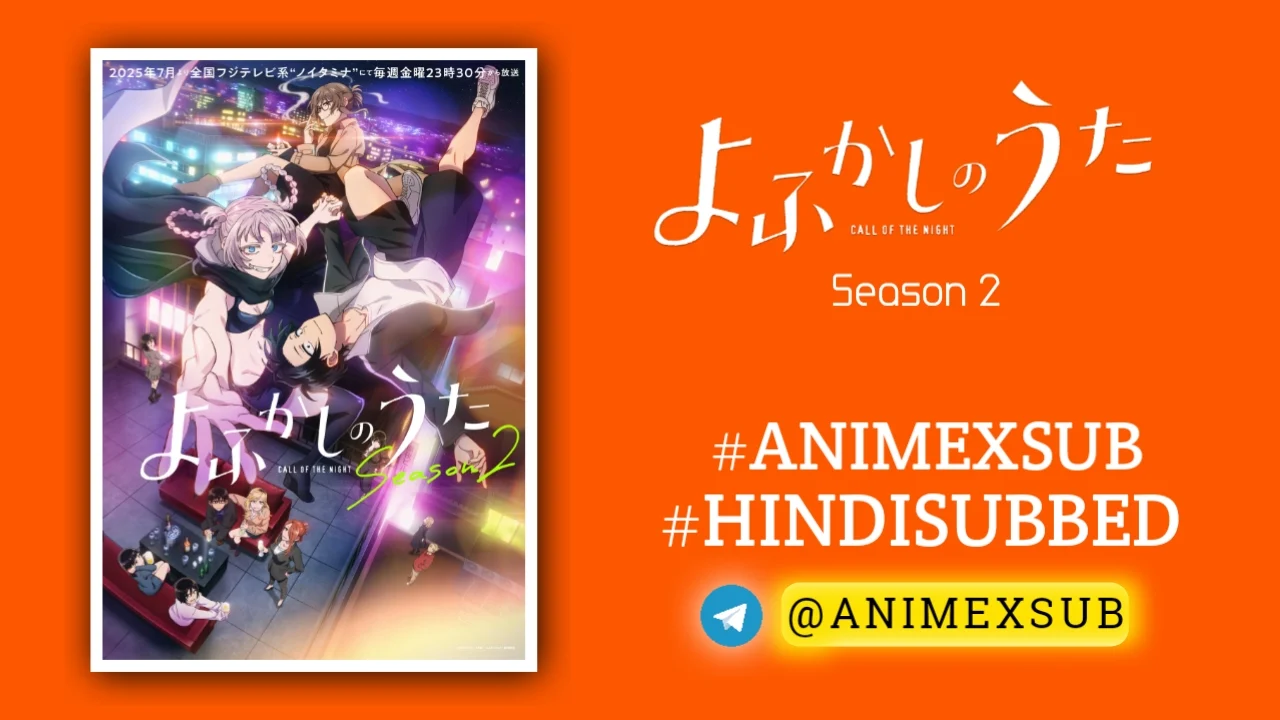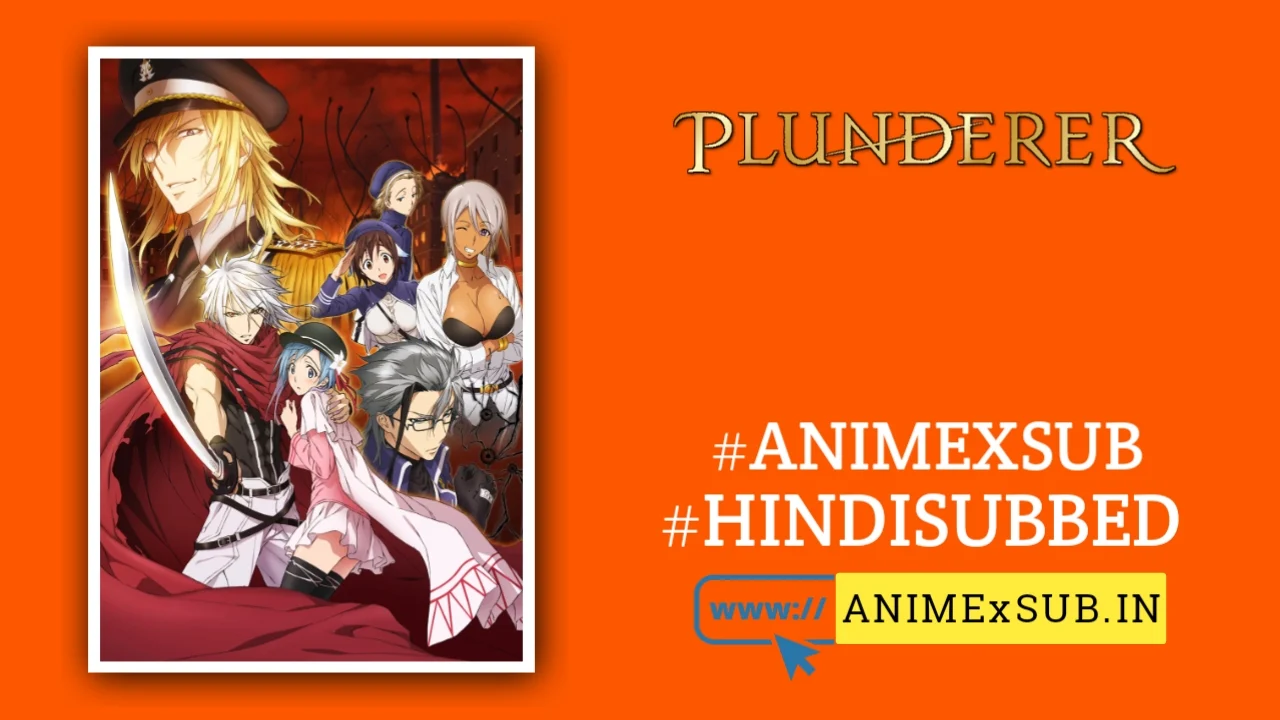
Plunderer Season 1 Hindi Subbed [24/24] {Complete}

Plunderer
PlundererSynopsis
Every human inhabiting the world of Alcia is branded by a “Count” or a number written on their body. Depending on how each person lives their life, this Count either goes up or down. For Hina’s mother, her total drops to 0 and she’s pulled into the Abyss, never to be seen again. But her mother’s last words send Hina on a quest to find a legendary hero from the Waste War—the fabled Ace! (Source: Funimation)
Watch Trailer
Characters
Plunderer Season 1: A Polarizing Dystopian Dive into Numbers and Ambition
Plunderer Season 1, a 2020 anime adaptation of Suu Minazuki’s manga by Geek Toys, is a bold, chaotic, and divisive entry in the shounen and fantasy genres. Set in the dystopian world of Alcia, where every person’s worth is dictated by a “Count” tattooed on their body—a number tied to specific life actions, like kilometers walked or compliments received—the series introduces a high-stakes premise: if your Count hits zero, you’re dragged into the Abyss, a fate worse than death. This unique concept, paired with a blend of action, ecchi, and mystery, makes Plunderer a fascinating yet flawed experiment that pushes boundaries but stumbles in execution. Below is an in-depth, spoiler-light exploration of its strengths, weaknesses, and what sets it apart, drawing from its narrative, characters, and thematic ambitions.
A World Ruled by Numbers: The Premise’s Power and Pitfalls
The core idea of Plunderer—a society governed by arbitrary numerical metrics—is both its greatest asset and its most underutilized element. The “Count” system is a clever allegory for societal hierarchies, reflecting how external measures (wealth, status, or arbitrary rules) can define human value. Hina, the female protagonist, carries a Count tied to the distance she’s traveled, a quest born from her mother’s dying wish to find the Legendary Red Baron. This setup promises a layered exploration of free will, societal control, and personal identity, but the show struggles to deliver a cohesive narrative.
The first half of the 24-episode season feels aimless, with disjointed pacing and an overreliance on ecchi humor that often undermines the story’s darker undertones. Licht Bach, the masked male protagonist with a mysterious negative Count, is introduced in a way that feels jarring—his perverse antics, like groping Hina in the opening minutes, alienate viewers expecting a more serious tone. By episode 12, however, the series hits a turning point, delivering plot twists that reframe the world and its rules, shifting from a seemingly simplistic adventure to a complex, time-bending mystery. These twists, while intriguing, arrive too late for some, and the lack of foreshadowing can make them feel unearned.
Characters: Cardboard Archetypes or Hidden Depth?
Plunderer’s characters are a lightning rod for criticism, often described as one-dimensional or overly trope-heavy. Hina is the naive, kind-hearted heroine; Licht is the misunderstood, overpowered pervert; Jail Murdoch is the stoic, justice-driven soldier; and Lyne Mei is the bubbly sergeant with little initial depth. Critics argue these archetypes lack nuance, with their actions often serving the plot’s convenience rather than organic development. For instance, Licht’s comedic perversion feels at odds with his tragic backstory, creating a tonal dissonance that persists throughout.
Yet, there’s an argument for hidden depth. The second half reveals layers to Licht and Nana, a tavern owner with surprising knowledge of Alcia’s secrets, that challenge initial impressions. The show attempts to subvert its own clichés, particularly with Licht’s negative Count and the moral dilemmas faced by Jail, whose rigid sense of justice is tested by Alcia’s corrupt system. However, side characters like Pele and Lynn receive minimal development, leaving the ensemble feeling unbalanced. Fans of character-driven stories may find this lack of depth frustrating, while those who enjoy shounen staples might appreciate the familiar molds elevated by late-season revelations.
Visuals and Sound: A Mixed Bag of Ambition
Geek Toys’ animation is a point of contention. The art style is vibrant, with character designs that pop—Licht’s white hair and red eyes scream “main character energy,” and the world’s medieval-meets-steampunk aesthetic is visually engaging. However, the animation quality dips during action scenes, with stiff choreography and inconsistent frame rates that sap the excitement from fights. Compared to contemporaries like The Seven Deadly Sins, Plunderer’s action feels lackluster, often relying on quick cuts to mask budget constraints.
The soundtrack, composed by Junichi Matsumoto, is a highlight, with a mix of orchestral intensity and haunting melodies that elevate key moments. The opening themes, “Plunderer” and “Kokou no Hikari Lonely dark” by Miku Itō, capture the show’s blend of adventure and melancholy, while Rina Honnizumi’s ending themes add emotional weight. Voice acting, particularly Yoshiki Nakajima as Licht, shines in dramatic scenes but struggles to sell the comedic bits, reflecting the show’s tonal inconsistency.
Themes and Execution: A Missed Opportunity?
At its core, Plunderer grapples with ambitious themes: the dehumanization of societal metrics, the cost of rebellion, and the cyclical nature of power. The “Count” system could have been a biting critique of modern meritocracies, but the show leans too heavily on fanservice and shounen tropes, diluting its potential. The ecchi elements, while not as explicit as some genres, often feel gratuitous, with scenes like Licht’s harassment of Hina detracting from the narrative’s weight. Critics note this as a major flaw, with some calling it “juvenile” or “gross.” Yet, for viewers who tolerate the fanservice, the later episodes offer a grim, dystopian lens that questions authority and sacrifice, hinting at what could have been a genre standout.
The show’s pacing is its Achilles’ heel. The first 10 episodes meander with filler-like content—random fights, excessive comedy, and minimal world-building—before the plot accelerates with time-travel elements and revelations about Alcia’s origins. This shift, while mind-blowing for some, feels like a different show, leaving viewers divided: some praise the “roller coaster of emotion” post-episode 12, while others see it as a desperate attempt to salvage a sinking ship. The cliffhanger ending sets up a potential second season, but with no renewal confirmed as of August 2025, it leaves fans hanging.
Reception: A Love-Hate Divide
Plunderer’s reception is a microcosm of its contradictions. On MyAnimeList, it sits at a 6.5/10, with fans praising its unique premise and late-game twists but slamming its pacing, fanservice, and shallow characters. IMDb reviews echo this, with some calling it “addicting” and others “unwatchable” due to its ecchi excess and incoherent plot. Reddit threads highlight its polarizing nature: one user gave it an 8.5/10 for its “super interesting” twists, while another called it “mentally challenged” for its convoluted storytelling. The manga, often cited as superior, suggests the anime’s adaptation struggled to capture its depth.
Why It Stands Out (For Better or Worse)
What makes Plunderer Season 1 unique is its refusal to play it safe. It takes a wildly creative premise and swings for the fences, blending shounen action, ecchi comedy, and dystopian mystery in a way that feels both chaotic and ambitious. It’s not a masterpiece—its flaws in pacing, character depth, and tonal balance are undeniable—but it’s not the “sewage” some critics claim. For every misstep (like Licht’s cringe-worthy antics), there’s a moment of brilliance, like the episode 12 twist that redefines the world’s rules. It’s a show that demands patience, rewarding those who stick with it while frustrating those who can’t stomach its early stumbles.
Who Should Watch It?
Plunderer Season 1 is best suited for shounen fans who enjoy high-concept worlds and can overlook ecchi excess and uneven pacing. If you loved The Seven Deadly Sins for its action and humor but wished for a darker edge, Plunderer might scratch that itch—provided you can endure the first half. Conversely, if you prioritize tight storytelling or dislike fanservice, this may be a hard pass. For manga readers, the anime’s adaptation cuts corners, so sticking to the source material might be wiser.
Final Verdict
Plunderer Season 1 is a flawed gem, a show with a brilliant premise that stumbles under the weight of its ambitions. Its unique “Count” system and late-season twists offer enough intrigue to warrant a watch, but its pacing issues, reliance on fanservice, and shallow characters hold it back from greatness. It’s a polarizing experience—neither a must-watch classic nor a complete disaster—but one that leaves you curious about where it could go next, if only it had refined its execution. For those willing to brave its rough edges, Plunderer offers a wild, imperfect ride that’s unlike anything else in the 2020 anime landscape.
Rating: 6.8/10
A unique but messy shounen adventure that shines brightest when it dares to be different, yet falters when it leans on clichés.
Support Our Anime Community!
Love watching the latest anime? Help us keep uploading new episodes by join telegram channel ❤️
Join Now!